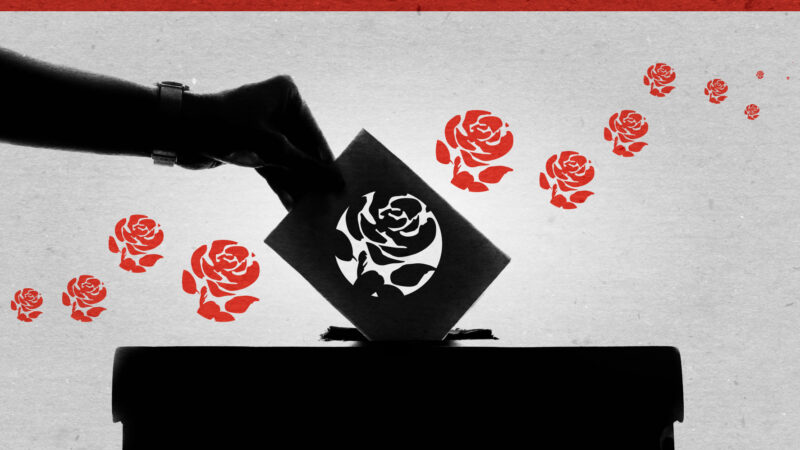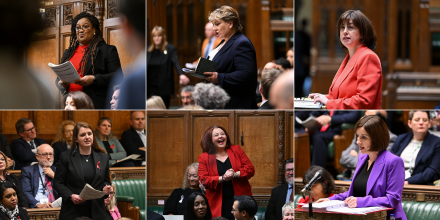
Labour’s Deputy Leadership race is off to a flying start. I would normally mention at this point the number of candidates already declared, but every time I look up for a moment there’s been another one. The short timetable means everyone is having to make decisions very quickly.
Phase two already feels like a different era
The national executive committee (NEC) – one has to assume at the preference of Number 10 – has ensured that this will be a very short race – especially in the early stages where candidates need to find 80 MPs to nominate them. Some voice on the left are saying this is an attempt to shut them out of the contest.
I don’t think that’s quite right. I think the timetable owes more to a sense at the top of the Party that the last thing Labour should be doing right now is talking to itself, about itself. The ‘phase two’ reset of just nine days ago feels like a different era now, but if the impetus behind it was to help the government speak more to the country, this contest coming now has made that a million times harder and a lot less likely for a while.
READ MORE: Labour deputy leader election candidates: Who are the six candidates standing?
It is true that 80 MPs is a very high threshold for the left (or anyone) to get over when it comes to nominations. One can argue either way whether anyone who cannot convince one in five of their closest colleagues to support them has leadership qualities enough for the country or whether it is precisely the less clubbable people who have the individuality to stand out.
But the truth is, the threshold has been set for some time and so it is not the recent NEC decisions on timing that make this complicated for the left, but historic decisions on the process and PLP selections that have added up to a rocky terrain for any candidate from the further left reaches of the party.
Given this – if Bell Ribeiro-Addy fails to make the ballot that goes to the membership, the Socialist Campaign Group of MPs will have to decide if they throw their weight behind a soft left MP who does get through or if they decide to noisily sit the rest of the contest out.
Can the soft left organise?
The soft left – an amorphous term that encompasses a broad but unorganised swath of the MPs who make up the centre of the Labour Party (not to be confused with self-described centrists to their right – confused yet?) could definitely find more than 80 MPs to back a candidate.
The question there is whether there will be a candidate enough of this group can agree on to ensure at least one – if not two – of them get on the ballot. Or if the PLP vote splits in so many directions in the short chaotic nomination period that they fail to coalesce in time around a champion. One only has to remember the chaos that surrounded the fight between Angela Eagle and Owen Smith to be the “not Corbyn” candidate in 2016 to see how easily this could fall apart for a faction that has the numbers – but often fails to demonstrate they know how to count them properly.
At the time of writing this there are two holders of ministerial jobs who have declared – education secretary Bridget Phillipson and local government minister Alison McGovern. Both are widely seen as on the right of the Party and (despite much talk of briefing against the former) Starmer loyalists.
It might be thought that this would disadvantage them with members – who often use these contests to demonstrate their willingness to show independence. However, our exclusive polling shows Phillipson currently in the lead. So it may be that the Labour membership is not as left wing or as out of step with Starmer’s leadership as is sometimes supposed.
READ MORE: Labour deputy leader election candidates: Who are the five candidates standing?
This then leads to questions around whether either candidate will choose to hug Starmer close or demonstrate their independence from him. Collective responsibility means that no one running from a government position can stray too far from the government on policy.
So any pitch will have to be about fighting that corner loudly and loyally. Reminding members of the parts of the Starmer programme they like (Phillipson is particularly well placed for this as she can talk about Labour’s free school meals policy) and selling with a gusto that has sometimes been felt to be lacking at the top.
Starmer too will have to think long and hard about his behaviour during the contest. Labour members are not the angry lefty mob sometimes both left (who want to represent themselves as the champions of the disenfranchised) or right (who want to paint Labour members as out of touch) like to pretend.
But they also don’t take all that kindly to being led by the nose. In other issues of internal democracy Starmer and his team have sometimes acted with a heavy hand. Doing so now could easily backfire on them. Starmer may well do best by backing off and letting the contest play out in the membership and then defining his relationship with the winner afterwards.
Chaos, challenge or continuity?

One reason Starmer was elected Labour leader was that he offered a tired, battered and bruised membership a sense of stability after the chaotic Corbyn years. That chaos was not all of Corbyn’s making. Much of it had to do with a sense of a divided party at war with itself and everyone had a share in the blame for that.
This time, both the candidates and those who will cast their votes to elect one of them deputy leader will be asking if the Party membership still feels that way. Or if might invite back in a little chaos and challenge, by electing someone to publicly speak against Starmer’s Labour government with their own mandate to do so.
Subscribe here to our daily newsletter roundup of Labour news, analysis and comment– and follow us on Bluesky, WhatsApp, X and Facebook.
If the latter, managing that relationship will be at once more tricky and more urgent for Starmer. He will need to decide quickly if the winner isn’t a current minister or cabinet member if they can and should be brought into government in order to be part of collective responsibility. If not, they will need to get very used to not being the sole encompassing power base in the party.
We are all asking each other “who is running?” We will soon be asking “who has the nominations?”? Then, of course, “Who will win?”
But the fundamental questions about what this contest is going to say about the party and its membership run deeper than that. The key questions of party management that have surfaced at times throughout Starmer’s tenure as leader are more exposed than ever by these events so far out of his control (and where a whiff of control might actually do more harm than good).
On Saturday October 25th we will know the result. It may be much longer before we know what that result means.
READ MORE: Labour Party Conference 2025: Full LabourList events programme, revealed
- SHARE: If you have anything to share that we should be looking into or publishing about this story – or any other topic involving Labour– contact us (strictly anonymously if you wish) at [email protected].
- SUBSCRIBE: Sign up to LabourList’s morning email here for the best briefing on everything Labour, every weekday morning.
- DONATE: If you value our work, please chip in a few pounds a week and become one of our supporters, helping sustain and expand our coverage.
- PARTNER: If you or your organisation might be interested in partnering with us on sponsored events or projects, email [email protected].
- ADVERTISE: If your organisation would like to advertise or run sponsored pieces on LabourList‘s daily newsletter or website, contact our exclusive ad partners Total Politics at [email protected].




More from LabourList
‘Labour’s quiet quest for democratic renewal’
‘Labour promised to make work pay. Now it must deliver for young people’
‘Council Tax shouldn’t punish those who have the least or those we owe the most’